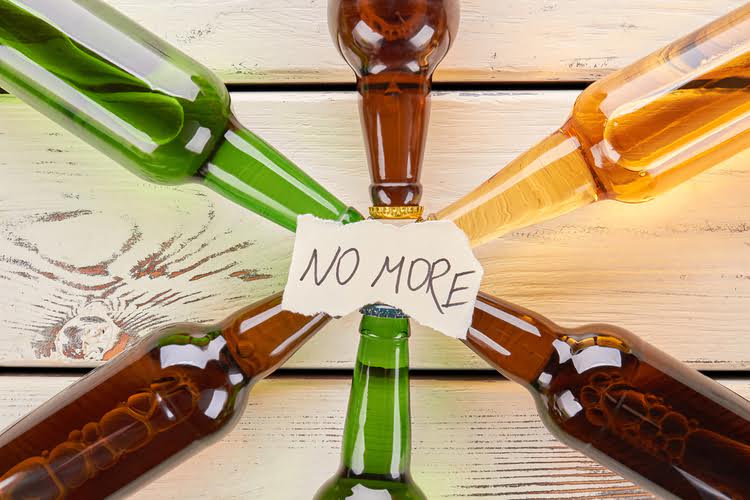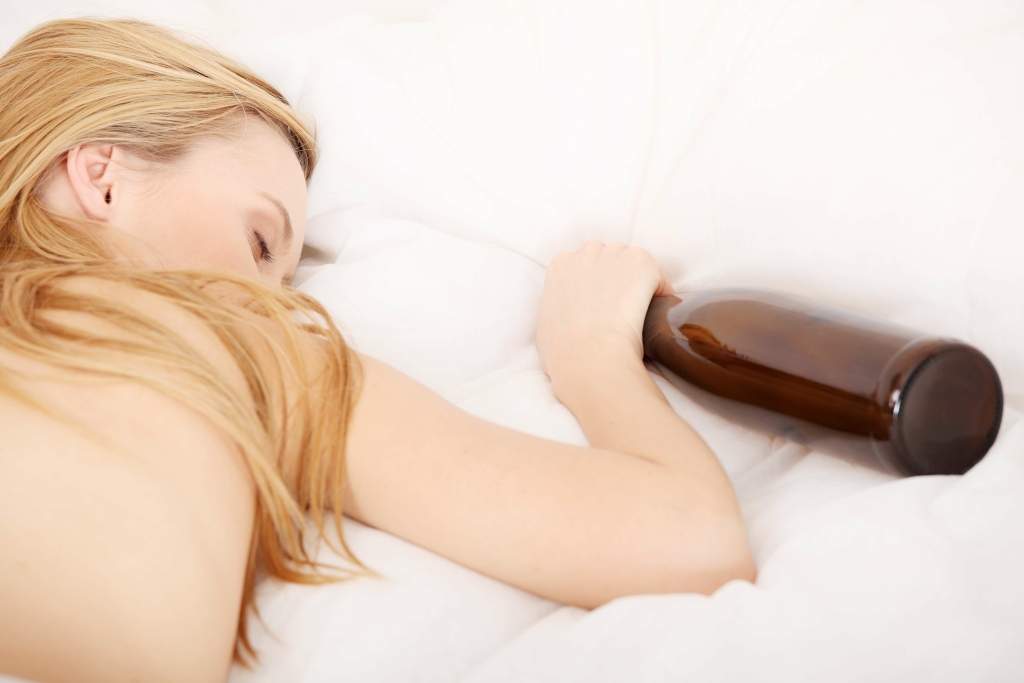Contents
After all, your sponsor has undoubtedly seen you through some tough times, and they deserve to hear from you in person if you decide to end the sponsor relationship. Ark Behavioral Health offers 100% confidential substance abuse assessment and treatment placement tailored to your individual needs. Some sponsees need to talk a couple of times a week, while others need to talk every day. Ask your sponsee how much of your time they think they’ll need, and be honest about your availability. While working the steps, the sponsee may face a number of challenges, such as procrastination, low self-esteem, or even relapse. The sponsor uses their knowledge and experience to help the sponsee overcome these challenges.

They may also accompany you to AA meetings in the early days of sobriety. A sponsor has completed each of the 12 steps in its entirety, and has applied the principles of the programme to their life to remain sober. Even if you don’t currently attend Alcoholics Anonymous recovery meetings but you’re interested in this concept, read on. There are many alternatives to sponsors that you can explore.
Final Thoughts on Dating an AA Sponsor
Every sponsor-sponsee relationship is different. Some sponsors get very involved in the lives of their sponsees—giving them rides, going to court dates with them—and in the beginning might ask to have some form of daily contact or communication. Some people have a single sponsor throughout their recovery, and others will change at times, finding new sponsors who meet the demands of ongoing recovery. They completed follow-up assessments 3 months, 6 months, and 12 months after treatment discharge. I think people in early recovery need to talk in meetings.
In your chemistry ‘intro’ session you can also discuss which communication method works best for you and your Sponsee, It is however strongly recommended to have a visual vs an audio meeting. If alcoholics anonymous you believe you can maintain your sobriety without a sponsor, that is a reason to celebrate. Just don’t lose your sponsor if it means you will lose all the ground you’ve gained during recovery.

In general, 12-step programs lack formal rules regarding sponsorships. Instead, they let the sponsors themselves choose how to best support sponsees. There are many benefits to having an addiction recovery sponsor. The main one being that you are not attempting recovery on your own.
The Right Treatment Facility
There’s a reason “anonymous” is part of the Alcoholics Anonymous and Narcotics Anonymous names. Confidentiality is a significant part of most 12-step programs. Many people don’t want others to know they are in recovery. While it shouldn’t be shameful to suffer from substance use disorder, other people knowing can sometimes put people’s safety, job, or family at risk. Sponsorship is a crucial aspect of the program that many newcomers are hesitant to engage in. At its core, sponsorship is simply a relationship with another member in the program who serves as a mentor, and that person’s sole job is to take you through the 12-step process.
Characteristic, beneficial, and image attributes in consumer judgments of similarity and preference. Bijmolt, T. H. A., Wedel, M., Pieters, R. G. M., & DeSarbo, W. S. International Journal of Research in Marketing, 15, 249–268.
How do sponsors make money?
A sponsorship is when a company commits money or resources to a nonprofit event or program in exchange for specific promotional benefits. In exchange for supporting the nonprofit, the company gets their name and logo on things like: Banners.
As you begin to grow, change, and enter new levels of healing, your sponsor will be right alongside you to guide you through any discomfort. Your recovery sponsor is there to help you know that everything you’re going through is completely normal. They provide you with validation and reassurance, and can help you feel so much less isolated in your recovery. When you have a sponsor in recovery, the journey is one that you will never have to face alone. However, a sponsor is there to listen to you at any time of the day. Their objective is to be there for you and to help you through whatever it is you’re going through as it relates to your recovery.
What Is A Sponsor In A 12-Step Program?
This, which is suggested in the 5th step of Alcoholics Anonymous, together with the 12 Step of helping others and carrying the message of recovery, is where the idea of a sponsor was formulated. When someone shares their experiences, and you realize I have thought that, or felt that, or made those kinds of choices/mistakes, that is probably a good sign of some compatibility. It’s easy to look at the differences between ourselves and others; the challenge is to focus on our universality and connections. People who are not able to control their emotions usually find the recovery journey almost impossible. However, it is not devoid of consequences, especially in the case of an AA sponsor and sponsee. Using Guider, our online Sponsorship platform, you will need to create a Sponsor profile giving an overview of your experience and interests.

You can bounce ideas off of them, or tell them about the inner struggles you’ve been facing. A recovery sponsor can help you regain some clarity and groundedness. You’ll alcohol and drug abuse counseling feel a weight off yourself simply by sharing with them what troubles you. Ideally, you should seek out a sponsor as soon as you begin a 12-step programme of recovery.
Which 12-Step Program Is Right For Me?
You just need a commitment to sobriety and a desire to help others. Casa Palmera, where our expert staff can assist you in meeting your sobriety goals. Like you, your sponsor is on the road of recovery—he is your peer, your cohort. He is not, however, supposed to act like a professional therapist or medical doctor. If you are seeking any kind of professional help, your sponsor can help direct you to the proper resources, but should never take on that role himself. There is no clear right or wrong answer to these questions.
In some cases, the relationship may continue for years and benefit both parties. A healthy, trusting sponsor-sponsee relationship benefits not only the sponsee but also the sponsor. That’s because sponsorship provides a sense of purpose that can further motivate the sponsor to maintain recovery. A sponsee is a person who receives guidance from a sponsor. Most sponsees are attempting 12-step recovery for the first time.
Maybe the new gig pays better, or has more appealing hours, or offers more opportunity for advancement, or is better aligned with your values and goals. So you tell your boss and your coworkers you are moving on. While you should meet up or take calls when possible, you must also focus on your own life and recovery. The staff was caring, professional, and knowledgeable.
They know how challenging recovery can be, and they want to be able to help others go through the recovery process. A sponsor is meant to help alcoholics navigate the hard journey to sobriety and recovery. Due to the intimacy involved in the relationship, however, it is not unheard of for a sponsor and a sponsee to get into a romantic relationship.
- He can also be your conduit into the program by suggesting reading material and introducing you to other group members.
- That’s because sponsorship provides a sense of purpose that can further motivate the sponsor to maintain recovery.
- If a core value must be discussed for your recovery, be upfront about that.
- Two people won’t always match up with each other, and that’s okay.
- However, this will vary from relationship to relationship so maybe more.
Soon thereafter, he met Dr. Bob, who was also early in recovery. When you have a sponsor, they essentially provide you with support and guidance as you navigate through the 12-step process. In this article, we’ll dive into what a sponsor is and what the sponsor-sponsee relationship looks like. We’ll clarify what a sponsor can and cannot do, and the many benefits of having a sponsor in your corner. If you’re willing to ask a question in a meeting, then the hard part is over.
Although it may seem simple, many people crave this type of connection when they first enter recovery. That’s because addiction can destroy personal relationships, leaving a person lonely and connectionless. What makes Casa Palmera distinct from other treatment facilities is our desire to not only heal the body, but also aiming to heal the mind and spirit.
If you think about this in terms of skills, you are the new person and have a big job ahead of you, and a sponsor is there to share their experience and show you the ropes. In Part I of this two-part series, I wrote about ways to go about finding a healthy meeting and table, as well as the idea of principles before personalities. In this article I want to tackle ideas about sponsorship, sharing in meetings and the nature of confidentiality. The lack of a solid support system can drive recovering addicts to seek romantic relationships even where they are inappropriate or unhealthy.
What is the difference between a sponsor and a partner?
By definition, a partnership is an agreement between entities that pool their resources together to offer a product/service where they share in the revenue. By definition, a sponsorship is an agreement that exchanges money or services/products (in kind) for the right to be associated with a company/brand.
Sponsors are taking time out of their day to show up physically and mentally. Your sponsor can give you the tools you need to move through recovery as recommended by the 12-step programme. They can show you how to work through the basic text, and facilitate taking you through each of the steps. Although which mental disorder is most commonly comorbid with alcoholism there are many things a recovery sponsor can help with, there are also some things that fall outside the scope of what a recovery sponsor is meant to do. Gaining clarity on what a recovery sponsor can and can’t help with is important when understanding the role a sponsor plays in your life.